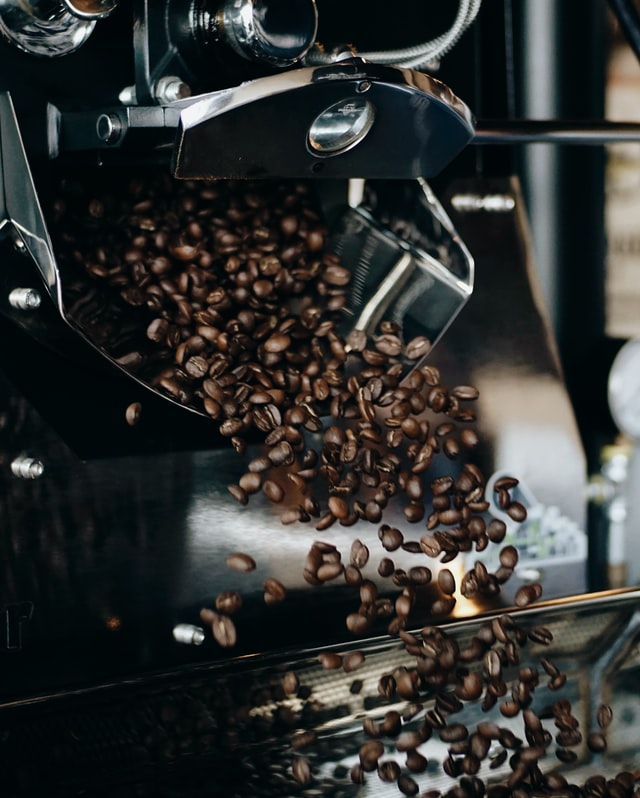Die Kaffeeriecher: The Coffee Sniffers Posted by Constanze on May 19, 2021 in Culture
Guten Tag! Today’s post is about one of my favourite things – coffee! We’ve talked about coffee (der Kaffee) a few times on the blog, including this post on Germany’s Kaffee und Kuchen Kultur (coffee and cake culture), and this one, which talks about a scam called die Kaffeefahrt. In today’s post, however, we’re going back in time to the 18th Century to learn about a group of people called die Kaffeeriecher: the coffee sniffers!
Die Kaffeeriecher: The Coffee Sniffers
Firstly, let’s look at the word itself! Der Kaffee is the German word for coffee. Riechen is the verb ‘to smell’ or ‘to sniff’. To be a ‘Riecher’ means to be a ‘sniffer’, and in this case, the word is referring to a group of people, hence the feminine article (die). Der Riecher is also an alternative way of saying die Nase (nose).
The term Kaffeeschnüffler is sometimes used instead of Kaffeeriecher. Schnüffler comes from the verb schnüffeln, meaning ‘to sniff’. However, it also means ‘to snoop around’ – and this is very appropriate, given the nature of the Kaffeeschnüffler!
Who were the Kaffeeriecher/Kaffeeschnüffler?
Let’s go back to the 18th Century, when Germany was still the Kingdom of Prussia (Königreich Preußen). Following the Siebenjährigen Krieg (Seven Years War, 1756 – 1763), Prussia’s treasury was leer (empty), so Friedrich II, the king at the time, made some changes in an attempt to boost the economy again. His goal was to get people consuming food and drink items from inside the Kingdom, so coffee, which was imported from across the border, was out. The state took over coffee roasting, with only state-owned and approved Kaffeeröstereien (coffee roasters) allowed to brew coffee. Any coffee that was available was sold at a hugely inflated price, so only the very well-off could afford it. Friedrich II wanted people to drink locally brewed das Bier (beer), or a coffee alternative made using der Chicoree (chicory), instead.
Whilst some accepted the alternatives, others turned to smuggling foreign coffee into the country. The coffee beans themselves were easy to smuggle (schmuggeln – to smuggle), but once in the country, one thing was harder to hide: the delightful smell of the coffee while it was roasting!
Friedrich knew coffee smuggling was a problem, so, to seek out anyone who was illegally smuggling and roasting coffee, he hired 400 people to work as Kaffeeriecher. These people – all of whom were die Soldaten (soldiers) who had been injured during the war – would walk the streets, and even search people’s houses sniffing for coffee, seeking out anyone who was roasting the drink without a permit. Offenders were fined if caught, though this didn’t deter people very much and the smuggling continued.
The rules were lifted and the Kaffeeriecher’s jobs came to an end in 1787, following Friedrich II’s Tod (death), and people were free to enjoy good quality coffee once more.
I hope you enjoyed this post! Here is some related vocabulary that you may find useful:
Die Kaffeerösterei – Coffee roaster
Das Schwarzbrennen – Roasting illegally/without license
Die Kaffeebohnen – Coffee beans
Der Kaffeekonsum – Coffee consumption
rösten – to roast
importieren – to import
schmuggeln – to smuggle

Build vocabulary, practice pronunciation, and more with Transparent Language Online. Available anytime, anywhere, on any device.







Comments:
Wendell Hunnicutt:
Thanks for this information on Coffee in German history. You are probably aware of Bach’s work, “Schweigt stille, plaudert nicht,” BWV 211, which is known in English as “The Coffee Cantata”. It is a small-scale comic opera about a young girl addicted to coffee and her father’s unsuccessful efforts to break the habit. It’s quite amusing and of course the music is beautiful. But it predates the Siebenjährigen Krieg by about 20 years.
Constanze:
@Wendell Hunnicutt Thanks Wendell for the comment! No, I had no idea about that Bach piece! Thank you for sharing. 🙂
DINNY:
I thought that der Chicoree (chicory) came t be used instead of coffee after World War II.
Constanze:
@DINNY Could well be the case, too!
Rick Grigsby:
This remains one of my most favorite blogs. It is timely, informative, historical (which I really love) and so very helpful for a non-native German speaker like me. I have not been in an intense German-speaking environment for many years but still enjoy keeping up with the language. Your work is indispensable.
Thank you so much for such an enjoyable and useful addition to my German language education!!
Constanze:
@Rick Grigsby Thanks for the feedback, Rick! So glad to hear you are enjoying the blog! 🙂